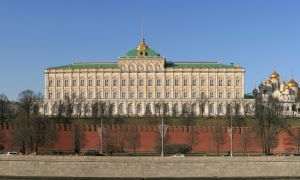The increasing number of room space during a year affected by the financial crisis has led to a drop in the occupancy rate of Bucharest hotels by 14,2%, down to 61,2%. Bucharest thus recorded the second greatest drop in Europe, after Reykjavik (-24,9%), according to the study "Hospitality Vision", made by Deloitte for the year which ended in September 2008.
After several years where Bucharest complained about the lack of adequate hotel accommodations amid growing demand, the year 2008 led to an oversupply, through the inauguration of the Ramada Plaza, Radisson SAS and the completion of the RIN Grand Hotel expansion. George Mucibabici, the Chairman of "Deloitte România", estimates: "Romania"s Capital is mostly a destination for business travel, and this study proves it once more. As the business expenses are shrinking lately, including the business travel expenses, the occupancy rate and the revenues of hotels are being affected".
According to a press release sent to our office, the average rate of Bucharest hotels reaches 120 Euros, and the revenue per available room (revPAR) reaches 73 Euros. During the analyzed period, this indicator dropped by 8,2%. "In the current market context, the outlook of this industry - just like that of the entire economy - is uncertain", emphasized Mr. Mucibabici. The long term challenge, for the local authorities and for the travel agents and hotels, is turning Bucharest into a cultural and entertainment spot in order to attract foreign and Romanian tourists.
The financial crisis can become an opportunity for the hotel industry of the emerging countries, considers Alex Kyriakidis, Global Managing Partner of Tourism, Hospitality & Leisure at "Deloitte". The investments in hotel operations have dropped by approximately five billion Euros in Europe, from the levels of almost 21 billion Euros in 2007. Still, the developers who can still raise money are quickly turning to the emerging markets such as Turkey, Russia or the Community of Independent States. SWFs and low cost operators are continually finalizing acquisitions. The financial tumult may represent an opportunity for companies sitting on cash and looking to invest in companies or hotel assets which are experiencing difficulties.
Marvin Rust, Hospitality Managing Partner with Deloitte, stated: "Until now, hotels have proven that they can face the economic decline, but the most dramatic events resulting from the current financial crisis only occurred after the month of August, when the performance of hotels started suffering the most, as a result of the reduction of expenses. The revPAR index in Europe dropped for four months in a row, and will remain at those negative levels for the entire last quarter of 2008".
The hotel owners now face a difficult combination of shrinking consumer confidence, credit pressure and the reduction of business budgets, which will affect the performance of the industry far more next year.














































